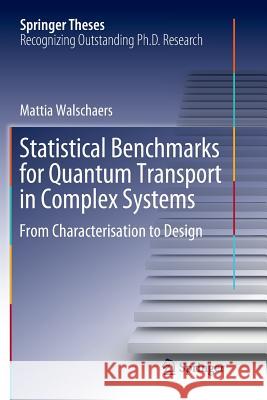Statistical Benchmarks for Quantum Transport in Complex Systems: From Characterisation to Design » książka
topmenu
Statistical Benchmarks for Quantum Transport in Complex Systems: From Characterisation to Design
ISBN-13: 9783030066024 / Angielski / Miękka / 2018 / 450 str.
Kategorie BISAC:
Wydawca:
Springer
Seria wydawnicza:
Język:
Angielski
ISBN-13:
9783030066024
Rok wydania:
2018
Dostępne języki:
Numer serii:
000416125
Ilość stron:
450
Waga:
0.65 kg
Wymiary:
23.39 x 15.6 x 2.41
Oprawa:
Miękka
Dodatkowe informacje:
Wydanie ilustrowane











